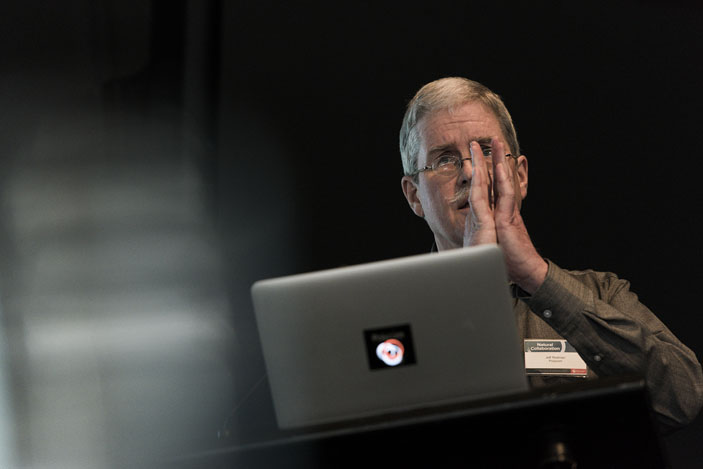WHILE business travel has become easier with cheaper options like budget airlines and Airbnb, it is not without its challenges.
From political decisions — US President Donald Trump imposing entry restrictions — to safety protocols forcing you to lock up your laptops in your luggage, and random explosive situations, the desire to travel is curbed by practical considerations, fear and uncertainty.
For businesses that are globally spread out, this poses a major challenge when it comes to getting things done efficiently. When travel is not an option, connecting by other means becomes a must-have rather than a like-to-have.
On the plus side, it also saves heaps of time, money and inconvenience. In 2008, the UK Minister of State for the Environment addressed the Climate Change Summit in Australia from the comfort of his London office. He used Polycom video, which was convenient for him, but also saved him 60 hours of travel time and 6.2 tons of C02 air-travel emissions.
These conditions were probably not top of mind when Jeffrey Rodman and Brian Hinman co-founded Polycom in a San Francisco basement in 1990.
Like many basement-to-riches stories, Polycom spotted an opportunity, went for it purposefully and has been able to shout about its success…many a time without travelling anywhere, which proved the viability of their product.

Tools Of The Technology Trade
The iconic speakerphones that are now omnipresent globally are focused on encouraging human collaboration. Their effectiveness and efficiency at bridging distances is a boon in a time of uncertainty, disruption and the need for increased communication.
Rodman admits that people have become more insular as a result of technology. But it’s technology that lets them keep in touch as new modes of connectivity emerge via mobile devices.
For all the technology in play Rodman says it’s about “technology disappearing”.
“It’s the experience at the end point that matters. Polycom makes the most of the person’s environment so that it picks up the voice as accurately as possible. It should be as good as being there,” he explains.
Working With Others
Constantly innovating, Polycom has introduced new products that make good use of the billions of kilometres of fibre optic networks, and works hard at delivering up to, and including, the last mile.
You Might Also Like To Read:
Its interoperable systems are inclusive, and with new technologies such as EagleEye Director, which identifies who is speaking in a conference call, and RealPresence Centro, which is great for collaboration, create enhanced communication experiences.
Its successful product innovation and roll outs would explain why there are more than 400,000 companies and institutions around the globe using Polycom’s systems.

The silver-haired soft-spoken Rodman has seen his company grow in reach and revenue. From generating $1.4 million in revenue when the first Polycom SoundStation conference phone was introduced in 1992, to $1.5 billion in 2015.
It shipped its 10-millionth audio device in 2013 and has collaborated with Skype and Microsoft for greater reach.
Rodman admits it has been an unplanned and unexpected journey. Having grown up with technology and art — his father was a radioman during World War II and his mother an organist and painter — Rodman took up photography, tinkered with sound and plays the piano (one of his key roles in the company, he quips).
The Next Phase
In 2016, Polycom was pursued by Canadian telecom firm Mitel, but decided to accept the US$2 billion offer by affiliates of private equity firm Siris Capital Group, instead.
It’s a move that freed Polycom from the clutches of quarterly reporting and delivering results in short bursts.
“As you know, innovative product and strategy developments usually have little organic correlation with rigid quarterly reporting, a mismatch which can cause considerable distortion in planning, workflow, and in a business itself,” Rodman explains.
“By disentangling that artificial calendar mandate from our operations, we’re able to be a lot more efficient in planning and executing what we do, and when we do it.”
The relationship with Siris Capital Group, with engineer and business veteran Mary MacDowell as the new CEO, is expected to chart new directions for Polycom.
“I believe this to be a very positive step forward. Polycom gains access to some of the finest strategic and technical minds in the industry,” Rodman adds.
Rodman must take comfort in the knowledge that while they may be new bedfellows, regardless of where they are located, they will all be within quick hailing distance.



















